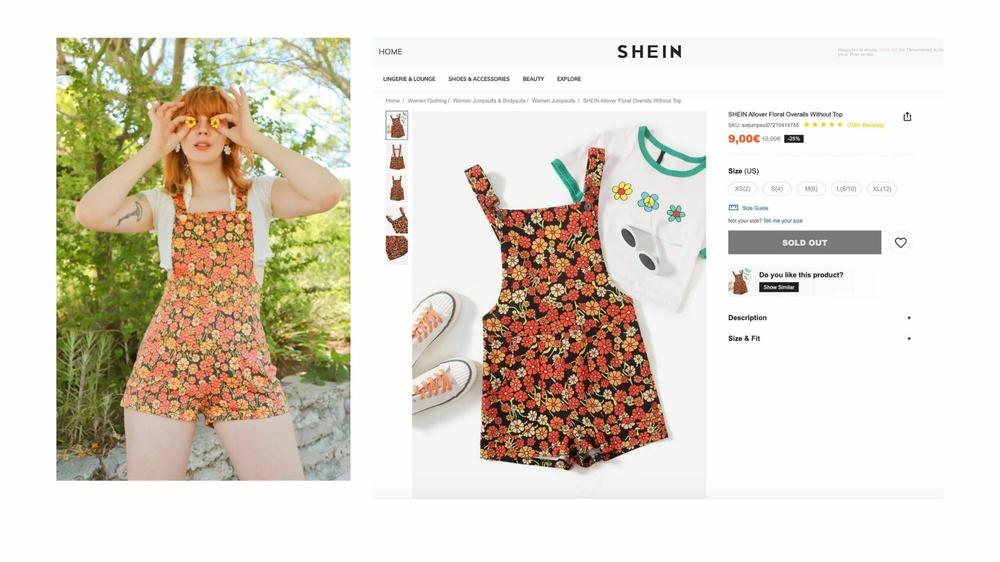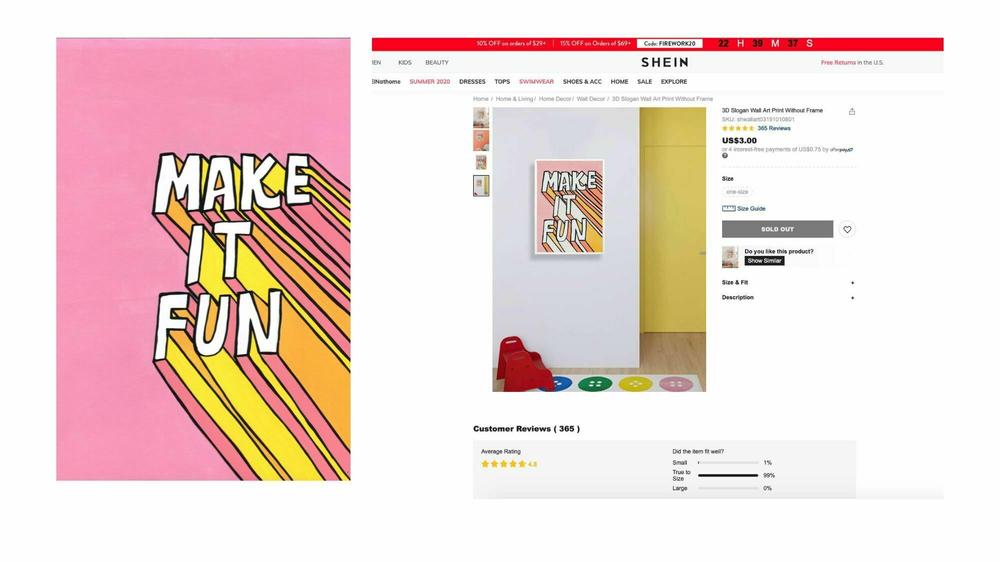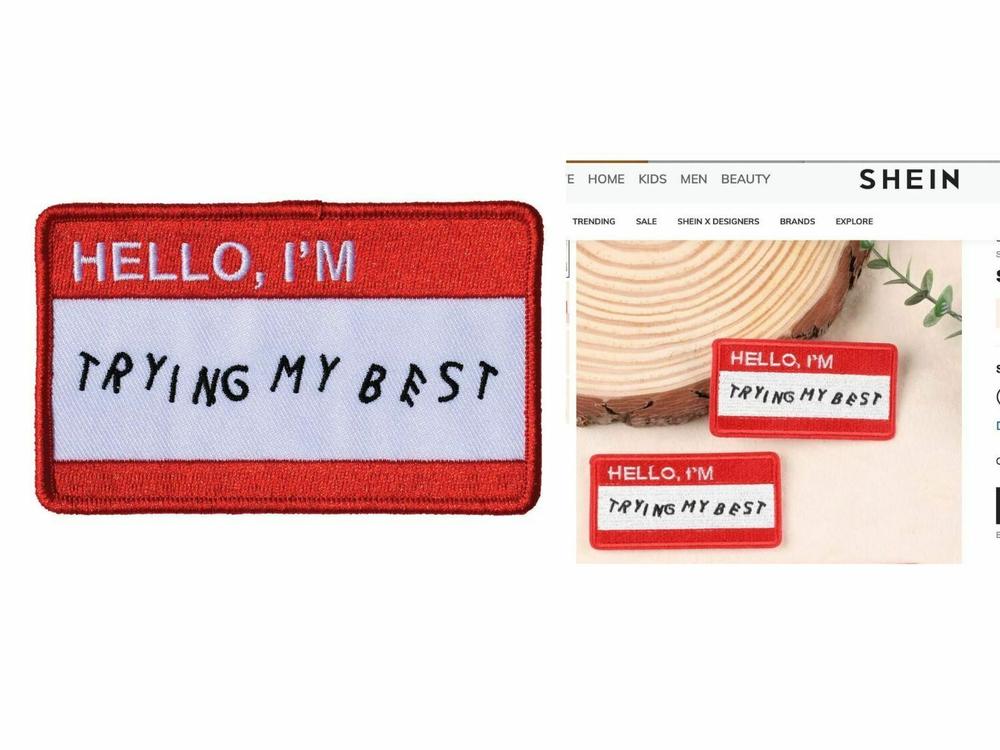Section Branding
Header Content
Shein steals artists' designs, a federal racketeering lawsuit says
Primary Content
Massive e-commerce company Shein is being accused in a new lawsuit of violating the federal anti-racketeering act, RICO, by copying independent designers' works.
Three artists — Krista Perry, Larissa Martinez and Jay Baron — allege Shein made exact copies of their work without their knowledge, behavior that is part of a larger pattern of unethical business practices, including decimating the environment, fostering unsafe working conditions and avoiding paying taxes.
"Shein has grown rich by committing individual infringements over and over again, as part of a long and continuous pattern of racketeering, which shows no sign of abating," their lawyers allege in a complaint filed Tuesday in a federal district court in California.
Shein did not immediately respond to a request for comment.
Perry is a designer and illustrator based in Massachusetts, and made a copyrighted graphic design with the stylized words "make it fun" on a pink background. Shein began selling it as wall art. Perry then contacted the company through its site and Shein offered to pay her $500, which she refused, the complaint says.
The company reached out to her the following year asking her if she would like to contribute to a capsule collection for aspiring artists, and offered her "what sounded like significant money to be made," the complaint says.
"How dare you contact me after my artwork has been stolen and the hard time I was put through with the people at Shein to resolve it," Perry replied. "This email disgusts me. Shein and [its sister company] Romwe have stolen artwork from both myself and many of my hardworking friends and colleagues."
The lawsuit also accuses Shein of stealing a floral blanket design by Perry.
Shein also allegedly stole one of Baron's designs, an embroidered name tag-style patch that says, "Hello I'm Trying My Best" and Martinez's design of a pair of overalls with orange daisies on them.
Baron is the founder of Retrograde Supply Co., which sells stickers and patches, while Martinez is the owner and CEO of Miracle Eye, a Los Angeles-based clothing company that she operates with her mother and aunt.
The RICO, or Racketeer Influenced and Corrupt Organizations, statute was enacted in 1970 to eliminate "the infiltration of organized crime and racketeering into legitimate organizations operating in interstate commerce," the Department of Justice says.
Racketeering is an umbrella term for crimes committed in business dealings, such as murder, kidnapping, gambling, arson, robbery, bribery and extortion.
The designers have suffered "substantial damage to [their businesses] in the form of diversion of trade, loss of profits, and a diminishment in the value" of their products and reputations, the complaint says.
Shein Distribution Corp., Roadget and Zoetop are named as defendants in the suit.
Shein Distribution is based in Delaware. Roadget and Zoetop, based in Singapore and Hong Kong, respectively, own Shein's worldwide trademarks, and own and operate its mobile apps and websites.
The lawyers say Shein's business model intentionally make it hard to pin down a defendant, as the company is a "decentralized constellation of entities, designed to improperly avoid liability."
Shein has faced several accusations of stealing designs in the past few years, including a crochet sweater, an enamel pin and earrings. But it can be difficult to settle lawsuits in the fashion industry because companies cannot copyright "useful things, at least not in their entirety," Julie Zerbo, a lawyer and fashion blogger, told NPR in 2021.
Clothing is deemed a utility item, and therefore does not have as many protections, she said.
As a result, lawyers can be hesitant to take on these types of cases, because "most lawyers would have accepted any minimal sum as compensation due to uncertainty about how to properly seek more appropriate remedies," the complaint says.
Jeff Gluck, an attorney representing the designers in Tuesday's lawsuit, said their law firm is currently fighting similar cases, which led to Perry, Martinez and Baron reaching out.
"We hope for a successful outcome that will have a positive impact on the global art and design communities that have long been at odds with Shein and the endless infringement allegations," he said.
Copyright 2023 NPR. To see more, visit https://www.npr.org.



